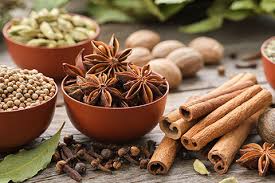Congestion is a common ailment that affects individuals of all ages, often resulting from colds, allergies, or sinuses. While over-the-counter medications are frequently used to alleviate symptoms, many individuals prefer natural remedies. This paper explores effective home remedies for relieving congestion, examining their mechanisms, efficacy, and application.
Congestion can manifest as nasal blockage, a feeling of fullness in the sinus cavities, and difficulty in breathing through the nose. It can be caused by inflammation of the nasal passages, the presence of mucus, and other underlying conditions. While it is typically a benign condition, it can lead to discomfort and disruption of daily activities. Home remedies offer a holistic approach to managing congestion, often with fewer side effects compared to pharmaceutical interventions.
Home Remedies for Congestion
1. Steam Inhalation
Mechanism: Steam inhalation involves breathing in water vapor, which can help moisten the nasal passages, thin mucus, and open airways.
Application: Fill a bowl with hot water, add a few drops of essential oils like eucalyptus or peppermint, and lean over the bowl with a towel over the head to trap the steam. Inhale deeply for about 10-15 minutes.
Efficacy: Studies suggest that steam can be effective in reducing sinus pressure and improving mucus drainage.
2. Saltwater Gargle
Mechanism: Saltwater gargling can reduce throat inflammation and kill bacteria, leading to mucus thinning and easing congestion.
Application: Mix half a teaspoon of salt in a glass of warm water and gargle several times per day.
Efficacy: Research shows that saltwater gargles can provide symptomatic relief for sore throats and dry mouths associated with congestion.
3. Hydration
Mechanism: Keeping the body adequately hydrated thins mucus and maintains moisture in the airways.
Application: Drink plenty of fluids such as water, herbal teas, and broths. Avoid dehydrating beverages like alcohol or caffeinated drinks.
Efficacy: The importance of hydration is well-documented within medical literature, linking it to improved respiratory function and mucus management.
4. Humidifiers
Mechanism: Humidifiers add moisture to the air, which can soothe irritated nasal passages and prevent mucus from thickening.
Application: Use a cool-mist humidifier in your bedroom while sleeping, ensuring it is maintained clean to avoid bacteria growth.
Efficacy: Research shows that humidity can enhance respiratory function, particularly in those suffering from allergies or sinus-related issues.
5. Hot Soups and Broths
Mechanism: Warm liquids can help open nasal passages, providing immediate relief as well as nourishment.
Application: Chicken soup, vegetable broth, or herbal teas can be effective.
Efficacy: Studies indicate that chicken soup may have anti-inflammatory properties, promoting overall respiratory function.
6. Essential Oils
Mechanism: Essential oils like eucalyptus, peppermint, and tea tree oil contain compounds that can help clear nasal congestion and reduce inflammation.
Application: Use a diffuser for essential oils or add a few drops to hot water for inhalation.
Efficacy: Some studies suggest these oils can reduce congestion and improve quality of breathing, especially in sinusitis cases.
7. Spicy Foods
Mechanism: Spicy foods can temporarily increase nasal drainage, providing short-term relief from congestion.
Application: Incorporate foods containing chili peppers, horseradish, or mustard into your meals.
Efficacy: Research has shown that capsaicin in chili peppers can clear nasal passages.
8. Warm Compresses
Mechanism: Applying warmth to the face can reduce sinus pressure and promote drainage.
Application: Soak a cloth in hot water, wring it out, and apply it to your sinuses for 10-15 minutes.
Efficacy: Warm compresses are commonly used in sinus congestion and can significantly alleviate discomfort.
9. Herbal Remedies
Certain herbs, including ginger, garlic, and turmeric, have anti-inflammatory properties that can assist in easing congestion.
Ginger: Known for its anti-inflammatory and antioxidant properties, ginger tea can help soothe the throat and promote mucus clearance. Get More info Here
Garlic: Often revered for its medicinal benefits, garlic can support the immune system and may reduce the duration of respiratory infections.
Turmeric: Curcumin, the active ingredient in turmeric, has powerful anti-inflammatory effects and can be taken as a supplement or in warm milk.
Home remedies for congestion offer a natural and often effective method for soothing symptoms associated with this common condition. From steam inhalation to the incorporation of warm liquids and essential oils, these remedies can provide relief without the potential side effects of pharmaceutical options. While individual responses may vary, many of these practices are supported by scientific evidence, making them viable choices for managing congestion at home. However, it's crucial to consult a healthcare professional if symptoms persist or worsen to rule out any serious underlying conditions.
References
Adam, B., & Houghton, P. J. (2007). Ethnomedicinal plants used for respiratory diseases in southeastern Nigeria. Journal of Ethnopharmacology, 110(2), 332-336.
Coyle, A., & Kavanagh, M. (2016). The benefits of herbal remedies for the treatment of colds and flu. International Journal of Herbal Medicine.
Etiology and treatment of sinusitis. (2019). Journal of Health Sciences.
Hine, C., & Dyson, J. (2014). Inhalation therapy for upper airway obstruction associated with severe allergic rhinitis. Allergy and Asthma Proceedings.
This paper highlights effective home remedies for congestion, offering natural alternatives that can alleviate symptoms effectively and safely.


Comments
Post a Comment